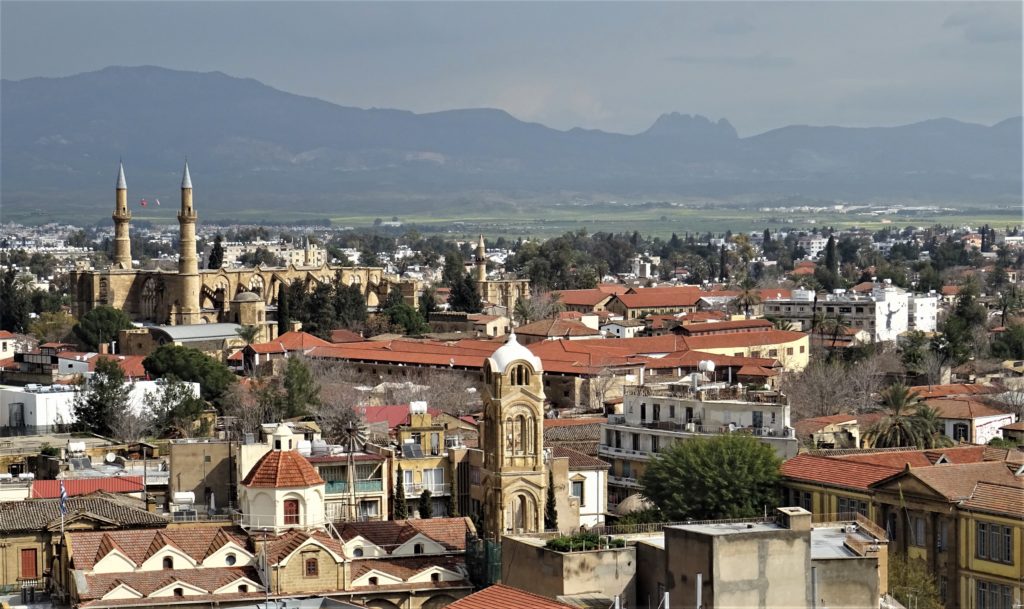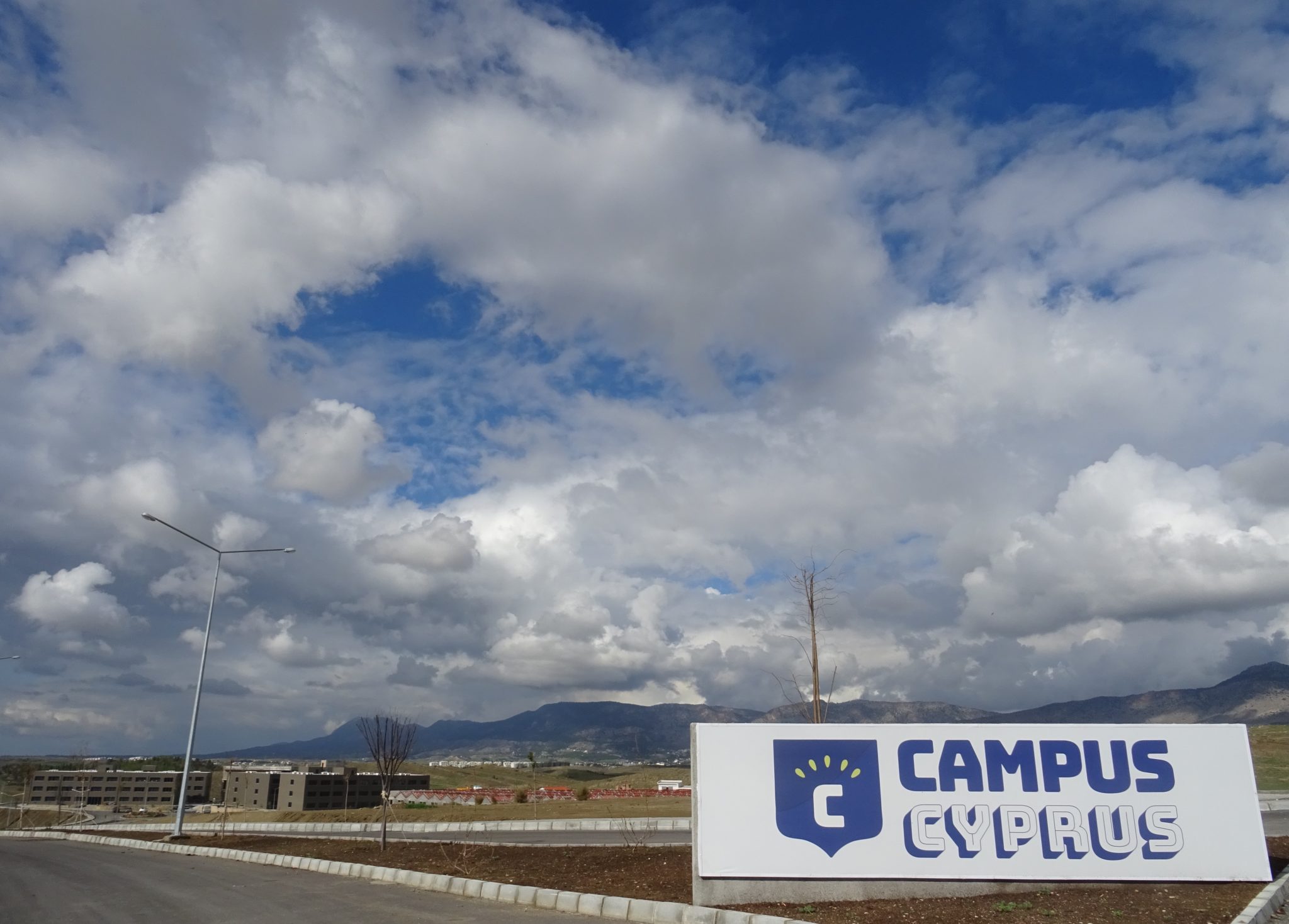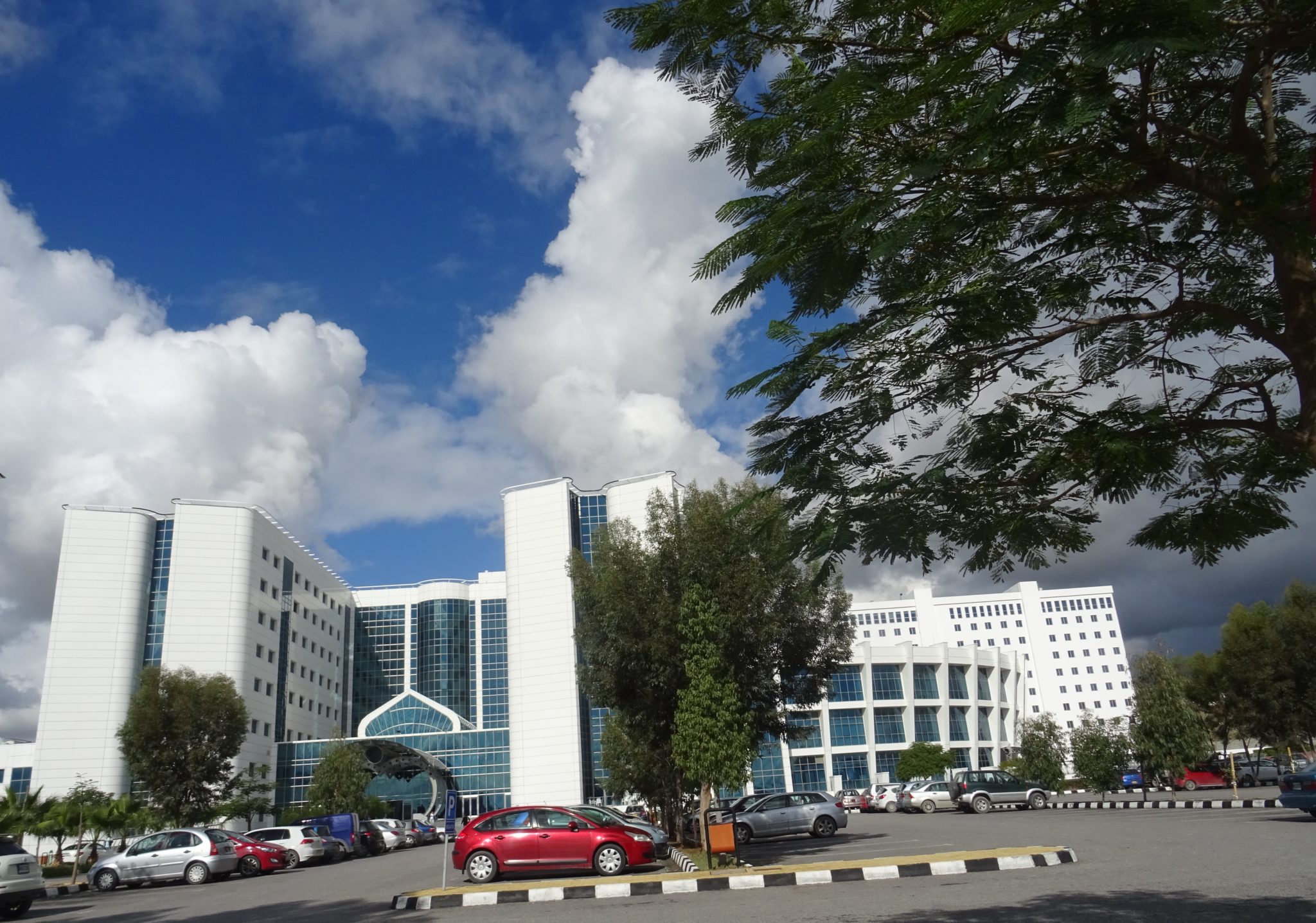Market failures and the challenge of applying Smart Specialisation Strategies in the Turkish Cypriot community

DOI reference: 10.1080/13673882.2018.00001025
By Bernard Musyck, School of Economic Sciences and Administration, Frederick University, Nicosia, Cyprus.
In this Insights, Bernard Musyck, looks at the possible allocation of EU Structural Funds and the subsequent implementation of a Smart Specialisation Strategy (S3), as part of the EU’s regional development policy after a possible reunification of Cyprus territory.
Introduction
Smart Specialisation refers to a strategic approach to regional development. The idea is to focus public support on research and innovation policies and to support a strategic vision for growth. Smart Specialisation could also be defined as a place-based strategy, supported by governance mechanisms that rely on the participation of a variety of local stakeholders. This endogenous growth initiative is supposed to be “smart” and “specialised”, because it attempts to tease out the specific knowledge-based potential of a region, whether it is driven by technology or not, whilst at the same avoiding the temptation to simply “improve the existing”. At its core is the idea that by identifying strategic priorities at the local level, ‘true innovations’ can emerge and add value to the local economy.
Cyprus has been divided for several decades. The mainly Greek Cypriot area, controlled by the Republic of Cyprus (ROC), is located in the southern part of the Island and the mainly Turkish Cypriot area, known internally as the “Turkish Republic of Northern Cyprus” (but recognised as such only by Turkey), is located in the northern part. Since Cyprus’ accession to the European Union (EU) in 2004 and the Island’s continuous de facto division, the acquis communautaire remains suspended in the northern part of the island pending a comprehensive settlement of the Cyprus reunification issue. Thus, even though Turkish Cypriots became EU citizens, the Turkish Cypriot Community (TCc) cannot benefit from all the rights provided by the EU accession, such as direct trade or free movement among member states. However, following the Turkish-Cypriot positive vote in the referendum on the Annan reunification plan in 2004, the EU established an Aid Programme for the Turkish Cypriot community, implemented by the European Commission through its EU Programme Support Office in Nicosia. The Aid Programme aims to facilitate the reunification of Cyprus through support for infrastructure, socio-economic development, bi-communal activities, education, civil society and familiarisation with the EU acquis. The EU also adopted a Green Line Regulation to allow trade between Turkish Cypriots with the rest of the EU.
With this context in mind, this article looks at the possible allocation of EU Structural Funds and the subsequent implementation of a Smart Specialisation Strategy (S3), as part of the EU’s regional development policy after a possible reunification of Cyprus territory.
On March 26 2015, the Republic of Cyprus (ROC) adopted its own Smart Specialisation Strategy. To use the European Commission’s definition, the adoption of such a strategy was an ex-ante conditionality for obtaining Structural Funds. Indeed, during the 2014-2020 programming period, European regions were required to develop their own Smart Specialisation Strategy prior to applying for EU funding. In the ROC, several strategic priority areas were identified including: energy, tourism, construction, transport, agriculture, food and health, whilst Information Technology (IT), the environment and human resources were identified as supporting horizontal priorities.
Preparing the grounds for a Smart Specialisation Strategy in a small island economy like the Turkish Cypriot community (TCc) is no easy task. The TCc comprises a large number of micro-enterprises with no tradition of innovation. The main challenge would be to ensure political mobilization and commitment at various levels of society (businesses, public institutions, governing bodies, civil society, higher education), who would all be expected to produce a place-based regional strategy based on a consensus initiated from the bottom-up. The latter is probably the greatest challenge for the TCc, because the community has been characterised by decades of political and institutional interference in the market. The economic isolation resulting from the “Cyprus problem” has also reduced the openness of the local economy, mainly affecting its ability to trade goods and services. Finally, the TCc also suffers from all the disadvantages of small island economies: high imports and the inability to substitute imports, coupled with a tiny domestic market that limits the ability to exploit economies of scale and the range of products that can be internationally competitive.
When it comes to Research and Development (R&D) infrastructures, limited resources have to be spread thinly. Scientific infrastructures are almost nonexistent and the community is affected by “brain drain”. The latter is also linked to the fact that Turkish Cypriot citizens, in principle, hold EU passports and can pursue meaningful careers elsewhere in the EU. For young graduates this is an attractive proposition.
There is however a variety of economic activities; small clusters with cross-sectoral linkages, basic value chains and common technologies, that may offer new business opportunities and could possibly be matched with future R&D. Detailed expert research could certainly help determine which of these specific activities deserve attention, leaving the question open as to whether some of these activities would be compatible with S3 or not.
Sectoral overview
The higher education sector is the most significant sector in terms of value creation in the TCc. According to Gokcekus (2016: 2), the higher education sector generates 38% of total income in the TCc and it is expected that demand will continue to grow significantly in the future. TC data shows 102,944 students registered for the academic year 2018-2019 at public and private academic institutions (12,506 are Turkish Cypriots, 54,966 are Turkish and 35,472 are foreign nationals – Cyprus Mail, 2018).
Figure 1. A new purpose built student residence on the outskirts of Nicosia

Source. Author’s own collection.
The competitive advantage of higher education bodies in the TCc resides in the fact that in addition to competitive tuition fees, they can host students at very competitive rates, offering flat rate packages for accommodation and food in addition to, or in conjunction with, academic fees. The Turkish market for students is also perceived as “endless” and will likely continue to support the sector in the future. TC higher education bodies are mainly “teaching universities”, catering for large masses of average students seeking basic education services. Still, the fact remains that this service industry is growing at a very rapid pace in a rather uncontrolled fashion. The number of students and education bodies seem disproportionate to the size of the population; can or should a small island economy sustain such a huge population of students? What are the economic and environmental risks associated to this situation? Can quality education be offered under such circumstances?
Figure 2. The Faculty of Medicine of the “Near East University” in Nicosia

Source. Author’s own collection.
Having said this, higher education is a sector with tremendous potential to generate significant value added and provide opportunities for high quality employment. It is also a sector where innovations can be implemented and where European funding could play a major role to improve competitiveness after the reunification of Cyprus. The TCc is endowed with many of the resources needed to further develop this sector and there is a huge market for English-speaking tertiary education outside the traditional Anglo-Saxon countries.
Tourism is the second largest sector (in terms of revenue) in the TCc and is dominated by luxury hotels that almost always host a casino on their premises. While gaming tourism operating in the TCc generates considerable value and employment, several contentious issues have been identified: the industry is dominated by Turkish interests, its regulatory framework is not controlled by domestic actors, profits are repatriated, issues of money laundering and human trafficking have been identified, the industry displays limited backward linkages to the local economy, the industry is mainly staffed by non-local manpower and over 90% of the clientele are Turkish nationals. There are also questions about the environmental sustainability of the sector, the over-emphasis of this type of tourism detracting from supporting and developing other forms of tourism, and finally, gaming tourism being reliant on shorter stays by visitors and subsequent reduced spending patterns in the local economy, as guests tend to opt for all-inclusive packages. Unlike conventional hotels, the luxury casino establishments have circumvented the problems associated with the international isolation of the TCc by concentrating solely on the Turkish market, offering organised packages sold through direct distribution channels.
Because the casino hotels represent huge investments, it also begs the question whether this could lead to resistance to resolving the Cyprus problem. A policy of smart specialisation presupposes amongst other things, an underlying philosophy of diversification and specialisation in new activities supported by a bottom-up process of entrepreneurial discovery. None of these prerequisites are compatible with the business model of casino/hospitality currently in place in the TCc.
Figure 3. Golden Tulip Nicosia Hotel & Casino

Source. Author’s own collection.
However, a smart specialisation policy could possibly help support the development of alternative forms of tourism which are driven by endogenous forces (such as ecotourism and traditional houses), even if today such forms of sustainable tourism play only a minor role in the process of value creation in the TCc’s hospitality business. To achieve the latter, a radical change will be needed to divert resources away from the current dominant business model.
The food processing sector shares similar problems: transportation is a barrier for trade; import duties distort competition, raw materials and technology cannot be sourced directly abroad, and skilled labour is difficult to find. Market limitations often lead to overcapacity of production through capital investments that are underutilised and companies face longer repayment horizons to amortise their investments in new technology. In turn, this slows down the process of innovation. Collaboration with local higher education bodies to promote new technologies is almost non-existent and the lack of R&D and an unlimited pool of cheap unqualified labour inevitably leads to low levels of innovation and the inability to capture higher proportions of value potentially embedded in local products.
Within the context of a Smart Specialisation Strategy, the food processing sector would benefit, among other things, from the ability to offer differentiated and specialised products that reflect local identity. Originality and character of genuine local products can command higher prices and help create more value. There are enough traditional products in the Cypriot food culture to sustain and develop a distinct industry that would be able to compete internationally on the basis of specific quality and character. The same values and traditional skills are shared on both sides of the Green Line and patterns of competitive collaboration could emerge at the level of the island as a whole. The complementarity of skills and abilities, the variety of tastes and traditions, could all contribute to feed and support sophisticated supply chains on the island. There are hundreds of small producers who each produce food of a unique character. Together, they could build a formidable cluster of high quality food production where complementarities and rivalries can create an innovative environment. This sector would be compatible with the philosophy of smart specialisation, by allowing process of entrepreneurial discovery to take place, under the condition that market failures would have been dealt with. Moreover, growth in this sector would greatly benefit new developments in sustainable forms of tourism; there is a strong complementarity between tourism, food processing and catering.
The restaurants and catering sector has faced considerable challenges as a result of the Green Line, which inhibits supply chains and raises import duties. It has also struggled to compete with the luxury hotels, largely due to the unequal distribution of resources and technology. However, restaurant owners can readily see the positive impact of a solution on their business of removing the Green Line, as their customer base would substantially increase overnight. The sector could also have an important role in supporting a reinvigorated food processing sector.
The consumer goods distribution sector faces many similar restrictions, since the market doesn’t operate freely. There are a variety of import duties for all imported goods, whilst the fluctuations of the Turkish Lira and the competition emanating from the ROC (Turkish Cypriots shopping across the Green Line) also add to the challenges faced by the sector. It is likely that this industry will continue to experience growth, capped by the evolution of the purchasing power of civil servants and students. The complicated nature of market operations and the extra costs of logistics will also add to the challenge. However, in the event of a solution to the Cyprus problem, the industry could expand and set up trading channels with Turkey (Cypriot traders selling Cypriot and EU products in Turkey), but so far, the lack of local manufacturing production in the TCc as well as institutional restrictions of all kinds, have probably left TC distribution companies with limited experience in trading between Cyprus and Turkey.
The current flourishing of the real estate sector has been based on the successful continuation of a business model focused on the huge Turkish market, which provides a continuous flow of tourists and students. Notwithstanding, there are considerable property issues linked to the unresolved Cyprus problem. To be included in the wider context of a Smart Specialisation Strategy, the real estate sector would need to be repositioned away from gaming and higher education, having a redefined role to support other activities fuelled by endogenous opportunities rather than exogenous triggers.
From top-down institutionalized market failure to a place-based local strategy?
The economic challenges faced by the Turkish Cypriot Community are substantial. A well functioning territorial growth process cannot develop in an environment affected by violations of basic market rules; market failure and smart growth are unlikely to occur together.
Dominique Foray explains why during the process of entrepreneurial discovery, which is central to any process of smart specialisation, market failures are a major hindrance: “The first step involves creating an economy that generates intensive activities comprising experiments and discoveries. Market failures restrict the process of entrepreneurial discovery due to the imperfect appropriation of the knowledge produced by these entrepreneurs” (Foray et al. 2011: 7). Furthermore, a place-based strategy needs to be integrated within the wider context of the global economy. Smart specialisation strategies are designed to allow regions to find their niche in the international division of labour and to move away from policies of protection and isolation.
A small economy that depends so heavily on two very specific “forms of tourism” 1) short-stay gambling hospitality, and 2) long-stay student residency, takes considerable risks. EU funds may flow to selected hotels to improve the energy efficiency of the buildings and higher education bodies may attract EU funding to support R&D, but this is not what smart specialisation should be. To be effective, Smart Specialisation requires a systemic place-based approach that is truly innovative and not merely the “improvement of existing structures”.
Dialogue and consultations may promote “local ownership” of the process of economic change. However, what is needed is an overarching framework to coordinate such initiatives, leading eventually, to a coherent strategy for all stakeholders. Whilst individual actors may be feeling powerless to lobby against the current state of affairs dominated by large interest groups, the situation is not facilitated by the fact that “real money” from donors is not forthcoming and will only be made available after EU accession. This catch-22 situation is trapping actors who cannot easily be convinced to make the decisive, and probably costly, steps forward under such uncertain conditions. Who would want to participate actively in a process of smart specialisation without knowing whether eventually the policies will be implemented?! Stakeholders need to see something “tangible” being offered to them and as long as Structural Funds are not available it will be challenging to mobilise them.
Another difficulty is that the TCc would need considerable time and effort to catch-up with its peers in Europe and eventually complete its harmonization process: “Turkish Cypriot laws and regulations are not compatible with the EU acquis… there are no sectoral policies/master plans that have been prepared… The TCc has not been through the accession process, and is therefore not ready to implement the acquis…” (Gokcekus 2016: 3-4). That being said, there is agreement amongst observers that “a smart specialisation-like exercise” would suit the current state of affairs. It does not really matter how it is labelled, but as long as stakeholders understand the need for a strategy underpinned by local consensus and participation, entrepreneurs could be motivated differentiate and specialise their activities and in so doing develop new, resilient, sustainable and independent forms of growth.
Disclaimer
Responsibility for the information and views set out in this publication lies entirely with the author.
References
Cyprus Mail (2018). Students in northern Cyprus top 100,000, 5 November 2018.
Foray, D., David, P. A. & Hall, B. H. (2011). Smart specialisation: from academic idea to political instrument, the surprising destiny of a concept and the difficulties involved in its implementation, paper prepared for European Integration process in the new regional and global settings, October 19th and 20th, Warsaw.
Gokcekus, O. (2016). Post solution economic opportunities and challenges for Turkish Cypriots, presented at Economic Prospects of Cyprus Settlement Conference, European Parliament, Brussels, 28 June 2016.
About the author

Dr. Bernard Musyck is a Regional Economist, currently Associate Professor Frederick University (Cyprus). His research interests include regional development, tourism and innovation policies. bmusyck@gmail.com